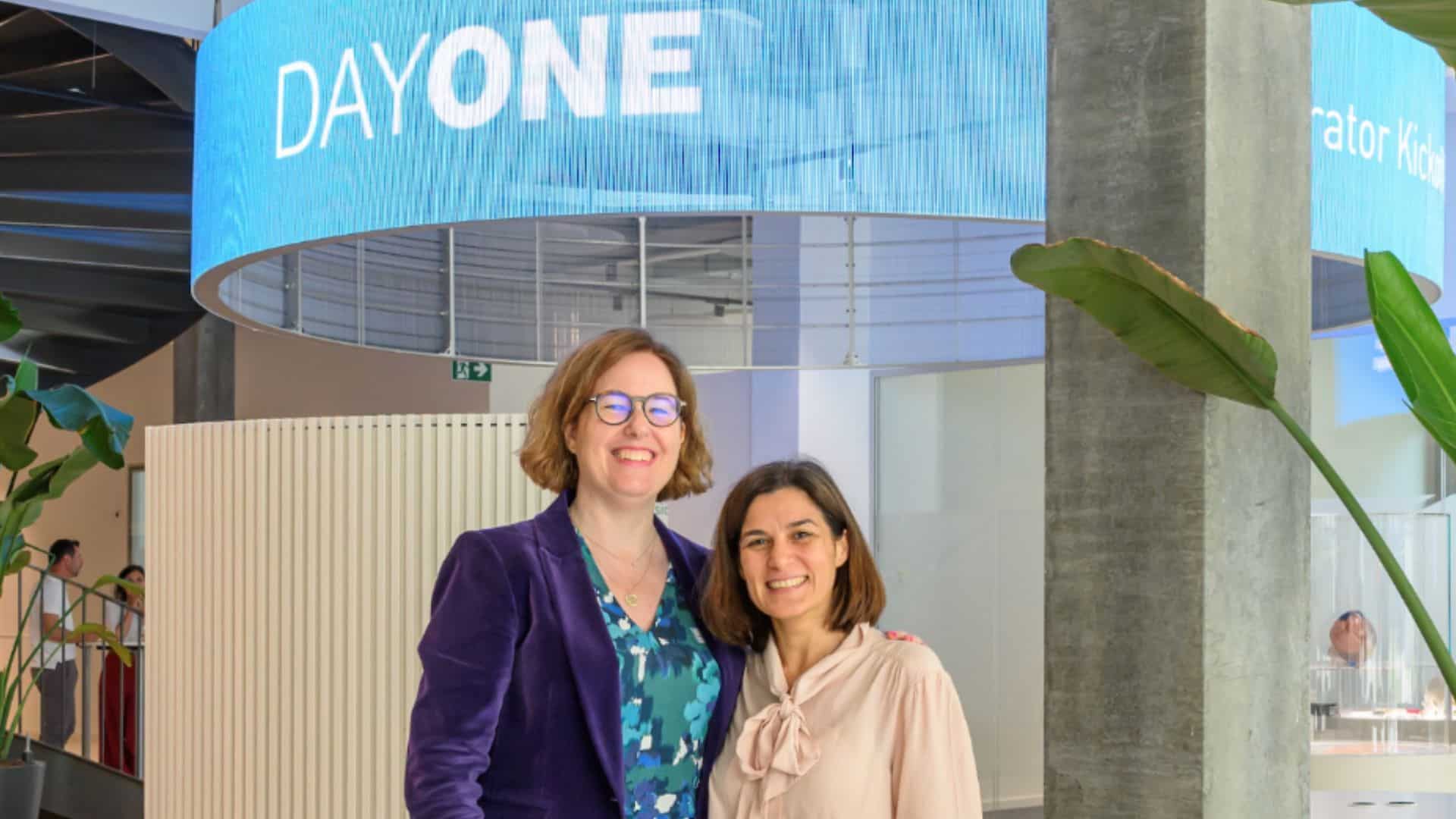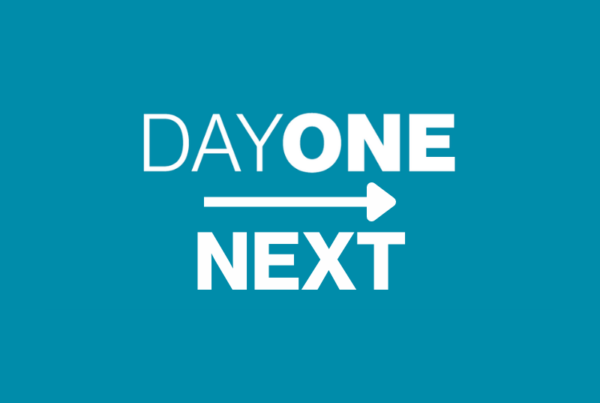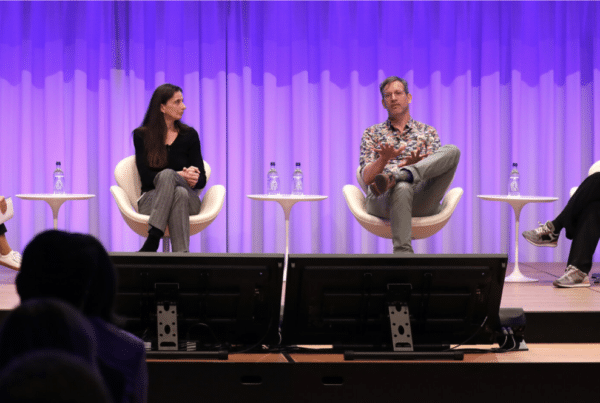The healthtech industry is navigating a period of rapid innovation and shifting investor dynamics. Ursula Costa, Director of Healthtech Innovation & Investment, and Cécile Tardy-Srinivasan, Portfolio & Accelerator Lead, offer their insights on the importance of validation, interoperability and workflow integration for healthtech ventures – and what today’s cautious but opportunity-driven investors are really looking for.

What emerging trends in healthtech are you most excited about, and how is DayOne positioning itself around them?
Ursula Costa (UC): I’m most excited about the rise of precision medicine, powered by new biomarker discovery, genomics and AI-driven analytics. These advances bring us closer to delivering the right therapy to the right patient at the right time. At DayOne, we support startups by connecting them with experts, partners and peers to help bring their innovations into real-world use.
Cécile Tardy-Srinivasan (CTS): I’m excited about how AI is transforming diagnostics, drug discovery, precision medicine and clinical trials – from radiology to multi-omics to faster patient enrolment. In the next decade, this could finally enable doctors to deliver the right treatment to the right patient at the right time. That’s why at DayOne we shifted our Accelerator toward Pharma clinical development three years ago and expanded into Pharma R&D this year, where we see the greatest potential for breakthroughs driven by startups and Pharma together.
What are the major challenges or common pitfalls that you are seeing right now for healthtech startups?
CTS: A major pitfall for startups is underestimating the need for clinical and regulatory evidence. Many secure early pilots and focus on tech, but without validation, scaling stalls. Another challenge is building for interoperability and global scalability from the start. Don’t assume your solution will replace existing systems; design for integration and embed scalability into your model early to avoid roadblocks later.
UC: As Cecile said, a major challenge for healthtech startups is underestimating integration and adoption. Even the best technical solution won’t succeed if it doesn’t fit into existing workflows, IT systems or reimbursement models. It’s important not to focus only on the technology, but also the end-to-end user journey. Startups that address interoperability, regulation and stakeholder needs early on are far more likely to scale.
How has investor sentiment toward healthtech evolved in the past years, and what do you expect in the coming year?
UC: Investor sentiment in healthtech has been a rollercoaster – from the 2021 boom to a cooling period with investors becoming more cautious and focused on fundamentals rather than hype. Now we’re seeing signs of renewed momentum, with larger rounds returning – especially for outliers in areas like discovery platforms, precision medicine and data-driven solutions. Looking ahead, investors are likely to back fewer but stronger bets with clear paths to adoption and commercialization.
CTS: The GenAI hype is settling, with investors now demanding clearer proof of value and sustainable business models. In the year ahead, expect fewer but larger deals, particularly in areas like AI-driven drug discovery and Health Management Solutions – continuing the trend seen in early 2025 (as seen in the Galen Growth Q2 2025 report here).
What do you believe are healthtech investors’ biggest concerns at the moment?
UC: Investors’ biggest concern at the moment is whether a healthtech solution can scale and adapt fast enough. Beyond strong technology, a solution must demonstrate adoption, integrate with existing systems, scale efficiently, and be supported by a capable team with a deep understanding of the problem and the ability to form partnerships with key stakeholders early on.
CTS: The key question is whether the startup can advance quickly enough through clinical and regulatory hurdles. Investors will ask: does your solution truly differentiate – like a new imaging foundation model across modalities, or is it just a “me too” product – like a voice biomarker with lower accuracy than existing options and in an overcrowded therapeutic area? They’ll also scrutinize whether your business model supports rapid and sustainable growth.
What are you most excited about for the DayOne Accelerator 2025 cohort?
CTS: This cohort brings a rich mix: ventures split between Switzerland, the US and Europe, spanning diverse maturity levels. Founders come from academia, clinical practice, tech and Pharma – some first-timers, others serial entrepreneurs. Notably, 60% (9 of 15) have a female co-founder or in the C-suite (without it being a selection criterion). Together, this diversity sparks powerful exchanges and synergies, already evident at the Bootcamp Kickoff in early September.
UC: I’m most excited about the diversity of founders and solutions in the 2025 cohort. I’m looking forward to seeing how they grow, evolve and turn their ideas into real-world impact.
Any advice for this year’s startups? And for the broader DayOne ecosystem?
UC: I would offer two key pieces of advice. First, establish the right priorities. While the possibilities in healthtech today are vast, success depends on focusing on the objectives that are most critical at this stage and what is achievable right now. Second, recognize the value of the network. The Basel Area’s life sciences ecosystem is highly influential, and cultivating connections early can significantly accelerate growth and create strategic opportunities for the future.
CTS: As Ursula said, you can’t chase too many geese at once – focus is everything. It matters to investors and partners, and to keeping your team and cash from burning out too fast. Financing and hiring have been tough in recent years, but scarcity breeds innovation. I’m excited to see how our DayOne ecosystem supports this new cohort, with 15 startups already engaging with regional stakeholders. I am looking forward to their growth through the DayOne Accelerator and beyond.


